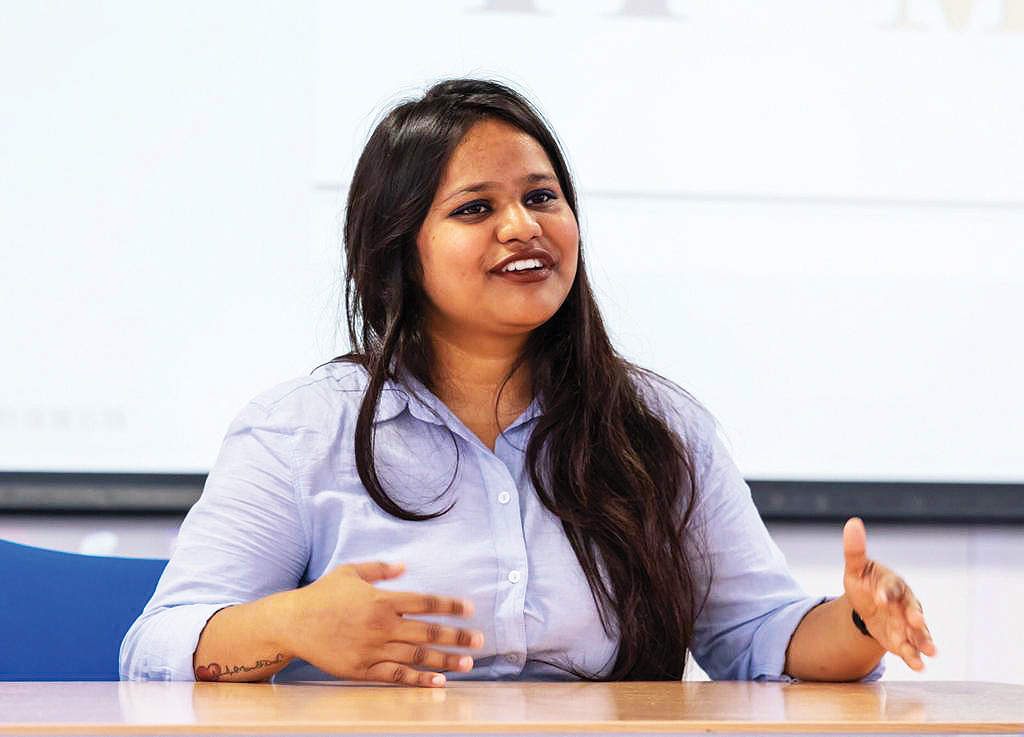Going abroad for higher studies is not that easy, the number has plunged by 21% according to statistics
Richa Malik was all set to go abroad for higher studies. But her departure has been bogged down with the long procedure and regulations laid down by the Queen Mary College in the United Kingdom, alongside several tests and applications. Her health check-up which includes an X-ray, mandatory for students applying for visas, wasn’t satisfactory and the process is now delayed by four to six weeks.
Malik says, “Even if one has a mild cough or cold, the X-ray would come out to be negative. In such a scenario, it becomes difficult for the student to clear the process.”

For medical and other reasons, the number of students going abroad for studies has plunged around 21% as per the data provided by the Ministry of Human Resources and Development.
According to the government data, 6,20,156 students went to foreign universities to pursue higher studies in 2018-19, compared to 7,86,576 students in 2017-18; a direct fall of 21%. In the United States alone, students visiting for higher education dropped from 4,47,836 in 2017-18 to 2,09,063 in 2018-19.
Speaking to Patriot, Malik gave details about her process. “One needs to get an SOP (Statement of Purpose), two recommendation letters and pass the English proficiency test (TOEFL or IELTS). Although some colleges require GRE score, it wasn’t mandatory in mine. But the biggest issue for any student applying abroad is the clearance of visa, and one requires a document named Confirmation of Acceptance of Studies (CAS) which is provided by the university.”
Further, Malik says, “After CAS, one needs to furnish financial documents where it is to be proven that the student or his family can bear the incoming costs including the fees and the accommodation. Thereafter, a TB test and an X-ray is required, conducted by the assigned doctor and the NOC by the latter is mandatory. I had a mild cough during my X-ray test and now the entire visa process has been delayed for 4-6 weeks.”
Meanwhile, the data provided by the Indian government is not in line with that of the US. The US authorities in the Open Doors report on international students, released in November 2019, illustrated an increase in the number of Indian students in the US by 2.9% from 1,96,271 in 2017-18 to 2,02,014 last year. The Ministry of HRD has suggested that the fall in the number of students going abroad might be due to the increase in the fee of courses and accommodation, harassment by educational consultants and the visa clearance issue, especially in the case of the US, where the policies followed by the President Donald Trump have been strict towards foreign students.
Diva Bhansali, who pursued MA in Marketing, PR and Corporate Communications from Leeds University Business School, Leeds in 2017-18 says that there are practically two ways to apply — independently or via education consultant. “It makes the process a bit easier when going abroad through a consultant but in my case, it was a bit different. The agency forgot to upload my 10th and 12th grades marksheet and hence my application got rejected. Thereafter I took the sole responsibility and cleared my way,” said Bhansali. Even after having a lucid website for applying, the universities abroad are loaded with heavy terminology and it becomes a hurdle for Indian students to cope up with due to a different education policy, added Bhansali, who is currently working as Senior Executive PR at Aakhya India in New Delhi.Detailing the drawbacks of studying abroad and a possible reason for the fall in numbers, Bhansali told Patriot that “at times consultancy firms would not pave way for a higher institution for a student as they might have a tie up or higher commission from other colleges; then when an international student goes out to look for a job, he/she is heavily discriminated as one does not belong to a particular country and that becomes a big challenge for studying abroad. Also, the job options in India is diverse and I have grown at a much faster pace here than I would have in UK.”
Karam Singh Grover, who is currently pursuing MSc in International Public Policy and Public Management from Erasmus University Rotterdam in Netherlands says, ‘Lack of information is the biggest issue for students opting out of foreign studies as it’s to get full information on courses and accommodation.’ Echoing the point made by Bhansali, Grover also feels that “There are policy consultants in India but they usually push for Universities that they have partnerships with and have little knowledge on more obscure markets (such as Germany or Netherlands). Another issues is understanding the job opportunities, as unlike India a lot of foreign universities don’t always have job placements.”
On the other hand, Priyanshi Sharma who went to the Newcastle University in UK (2018) says the process has now become simpler. “It’s the visa application that takes ages and a lot of careful preparation.” Throwing light on her experience as an international student, Sharma said “In Newcastle University, they made sure their international students were very comfortable with their new environment, although they were very particular about the attendance. You can’t just drop out from even a single lecture without notifying the admin officer.”
The HRD ministry, in its reply to Parliament claims, “Various steps have been taken by the Ministry of External Affairs and our Missions/Posts abroad to address the problems faced by the Indian students abroad.” The ministry also informed that a government-appointed expert group is looking after the issues of students abroad and is in touch with the embassies and high commissions.





